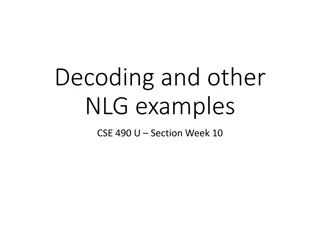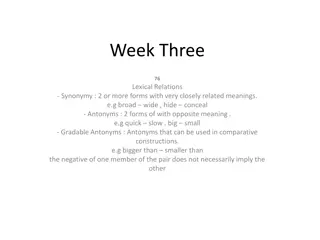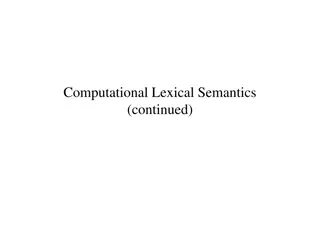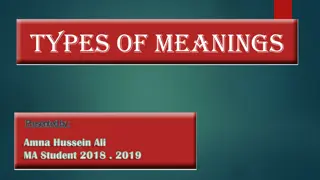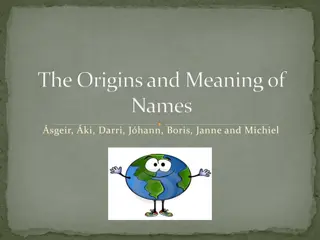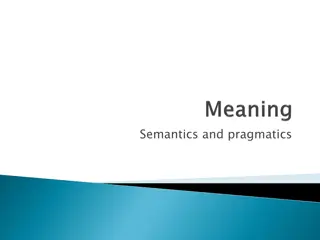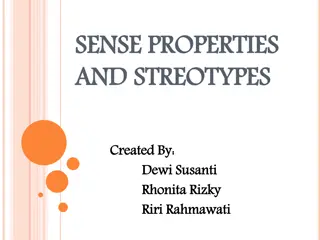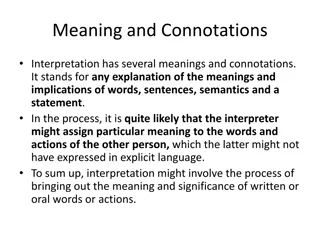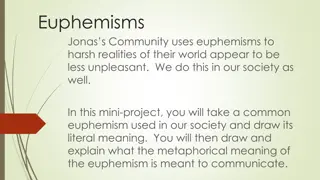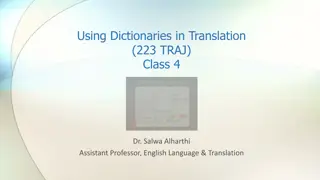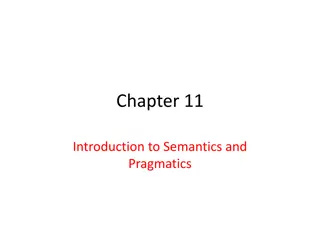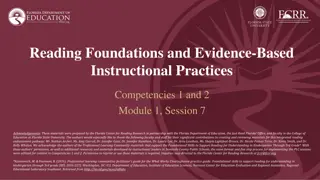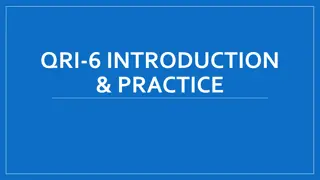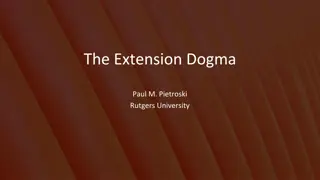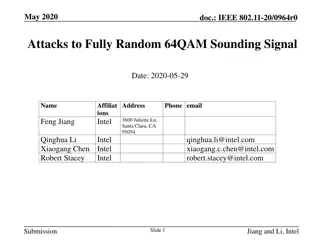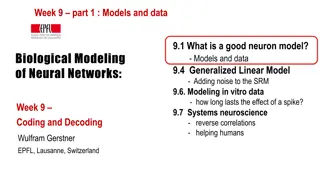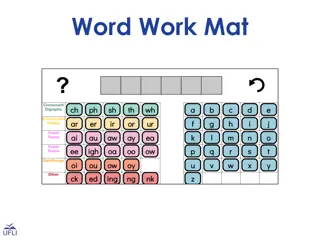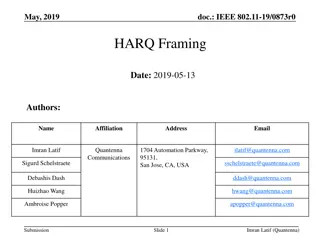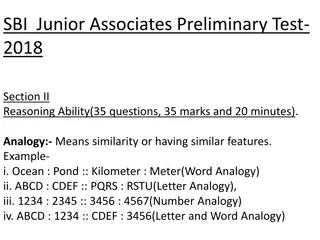Decoding English: Understanding Word Origins and Meanings
Explore the fascinating world of English language roots and word parts derived from Latin and Greek. Learn how recognizing these components can help you decode unfamiliar words with ease. Dive into examples and practice dissecting words to enhance your vocabulary skills.
Download Presentation

Please find below an Image/Link to download the presentation.
The content on the website is provided AS IS for your information and personal use only. It may not be sold, licensed, or shared on other websites without obtaining consent from the author. Download presentation by click this link. If you encounter any issues during the download, it is possible that the publisher has removed the file from their server.
E N D
Presentation Transcript
English is a hybrid language Over 75% of our words derived from Latin and Greek By learning to recognize word parts, we can decode thousands of unfamiliar words
Gastroenterology Necessary Microcosm = micro cosm Maximum = maxim um Imperceptible = im per cept ible Translucent = trans luc ent Heterogeneous = hetero gene ous = gastro enter(o) ology = ne cess ary
Example Words: Therm/thermo = heat Re ________ = back (again) Write the word part on one side of the card and the meaning on the other.
therm/ thermo heat Back (again) Re _____
Read the word part to yourself and say its meaning out loud. Picture the meaning in your head. After you have memorized the word parts in the lesson, try to dissect and decode sample words.
1. ______ity/ty = being (condition of being) 2. _____ology = study of (science of) 3. bio = life 4. ge/geo = earth 5. anthrop/anthropo = man (human) 6. psych/psycho = mind (soul) 7. soci/socio = companion (social)
8. zo/zoo = animal 9. mono = one 10. _____ism = being/belief in 11. pre_____ = before Note: pre before en e requires a hyphen as in pre- election A hyphen is used before a capital letter as in pre- Thanksgiving.


